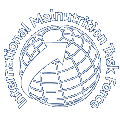Effects of childhood nutrition on adult economic productivity
Hoddinott, J., Maluccio, J.A., Behrman, J., Flores, R., Martorell, R.
There is evidence to suggest that improving nutrition in early childhood in developing countries is a long-term economic investment. This study investigates the direct effect of a nutrition intervention in early childhood on adult economic productivity. Findings of the study provide powerful economic incentive for investment in childhood nutrition.
Summary of the study taken from The Lancet:
Methods: We obtained economic data from 1424 Guatemalan individuals (aged 25–42 years) between 2002 and 2004. They accounted for 60% of the 2392 children (aged 0–7 years) who had been enrolled in a nutrition intervention study during 1969–77. In this initial study, two villages were randomly assigned a nutritious supplement (atole) for all children and two villages a less nutritious one (fresco). We estimated annual income, hours worked, and average hourly wages from all economic activities. We used linear regression models, adjusting for potentially confounding factors, to assess the relation between economic variables and exposure to atole or fresco at specific ages between birth and 7 years.
Findings: Exposure to atole before, but not after, age 3 years was associated with higher hourly wages, but only for men. For exposure to atole from 0 to 2 years, the increase was US$0•67 per hour (95% CI 0•16–1•17), which meant a 46% increase in average wages. There was a non-significant tendency for hours worked to be reduced and for annual incomes to be greater for those exposed to atole from 0 to 2 years.
Interpretation: Improving nutrition in early childhood led to substantial increases in wage rates for men, which suggests that investments in early childhood nutrition can be long-term drivers of economic growth.
